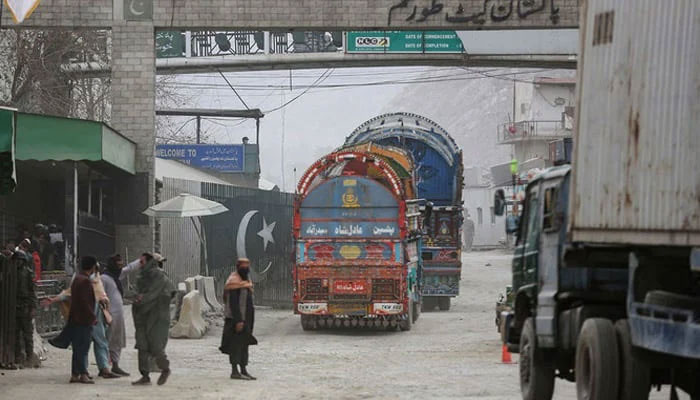Inconsistent policies
LAHORE: Pakistan's economic woes are not solely attributed to the frequent changes in policies. The snags created by the bureaucracy further hinder smooth business operations, even under stable policies.
Feasibility made for a project under one policy assumed to last through projects life becomes a nightmare if the policy is changed every time power is transferred from one party to the other.
The lopsided foreign investment is because of these inconsistent policies. Besides inconsistency of the policies the dealing of bureaucracy with the investors is highly negative. This has dampened and traumatized our potential for growth.
We have reached a stage where sustainability of the economy at current macroeconomic credentials is not viable. Fiscal deficit being created every year is simply not sustainable. Rupee stability is crucial for our economy as a decline of Rs1 in rupee value against dollar creates a foreign debt liability of Rs130 billion.
We are a no document cash economy. No one wants to pay taxes the world over but in developed economies no one escapes taxes because of effective systems. Under these circumstances we are risking our existence if we continue with uncertain policies and non-transparent bureaucracy.
Our policies must make business sense. We shun trade with India, on political grounds though it is the fourth largest global economy. Every politician fully knows that the Kashmir solution lies in talks and not war. By boycotting India we have closed the most important channel to engage India. Still, we see numerous Indian products making way in our country through other routes thanks to our corrupt bureaucrats. We pay more for these products as the third party that arranges change of labels and country origin adds its profit.
Even if trade is normalized our politicians start complaining that trade balance is heavily in favor of Indians. So what? They should calculate how much Pakistan saved in foreign exchange by importing industrial and pharmaceutical raw materials from India.
They are reluctant to allow free trade through Wagah border without realizing that importing goods like cotton and machinery through sea increases the cost and time of bringing goods for upcountry industries.
Many diagnostics for administrative barriers are being applied and refined worldwide by approaching the problem from the viewpoint of investors, traders, small and medium enterprises, the informal sector, and private sector development in general. Administrative barriers are seen as one reason for large informal sectors in many developing countries, since the costs of formalizing are higher than the gain in productivity from entering the formal sector.
Strategies to remedy administrative barriers have been introduced in many countries, including the use of transparency measures, regulatory reforms, efficiency reforms such as one-stop shops, and increasing use of e-government and information technology solutions.
Specialized solutions and principles are now well accepted in specific areas, such as customs reform and trade facilitation. We do pay lip service to these solutions as bureaucrats have upper hand and vested interest in nontransparent operations. They get rent from each action that deprives the state of revenue.
In our country, the legal and policy framework is the source of various failures in law compliance. This framework is usually confusing, inconsistent and difficult to comply with. In other cases it opens opportunities for arbitrary interpretation of rules and corruption. Penalties for breaking the law are usually negligible and therefore do not act as a significant deterrent.
-
 Leonardo DiCaprio's Girlfriend Vittoria Ceretti Given 'greatest Honor Of Her Life'
Leonardo DiCaprio's Girlfriend Vittoria Ceretti Given 'greatest Honor Of Her Life' -
 Beatrice, Eugenie’s Reaction Comes Out After Epstein Files Expose Their Personal Lives Even More
Beatrice, Eugenie’s Reaction Comes Out After Epstein Files Expose Their Personal Lives Even More -
 Will Smith Couldn't Make This Dog Part Of His Family: Here's Why
Will Smith Couldn't Make This Dog Part Of His Family: Here's Why -
 Kylie Jenner In Full Nesting Mode With Timothee Chalamet: ‘Pregnancy No Surprise Now’
Kylie Jenner In Full Nesting Mode With Timothee Chalamet: ‘Pregnancy No Surprise Now’ -
 Laura Dern Reflects On Being Rejected Due To Something She Can't Help
Laura Dern Reflects On Being Rejected Due To Something She Can't Help -
 HBO Axed Naomi Watts's 'Game Of Thrones' Sequel For This Reason
HBO Axed Naomi Watts's 'Game Of Thrones' Sequel For This Reason -
 King Charles' Sandringham Estate Gets 'public Safety Message' After Andrew Move
King Charles' Sandringham Estate Gets 'public Safety Message' After Andrew Move -
 Lewis Capaldi Sends Taylor Swift Sweet Message After 'Opalite' Video Role
Lewis Capaldi Sends Taylor Swift Sweet Message After 'Opalite' Video Role -
 Brooklyn Beckham Plunges Victoria, David Beckham Into Marital Woes: ‘They’re Exhausted As It Seeps Into Marriage
Brooklyn Beckham Plunges Victoria, David Beckham Into Marital Woes: ‘They’re Exhausted As It Seeps Into Marriage -
 Sarah Ferguson Joins Andrew In ‘forcing’ Their Daughters Hand: ‘She Can Lose Everything’
Sarah Ferguson Joins Andrew In ‘forcing’ Their Daughters Hand: ‘She Can Lose Everything’ -
 'Bridgerton' Author Reveals If Actors Will Be Recast In Future Seasons
'Bridgerton' Author Reveals If Actors Will Be Recast In Future Seasons -
 50 Cent Super Bowl Ad Goes Viral
50 Cent Super Bowl Ad Goes Viral -
 'The Housemaid' Lifts Company's Profits: Here's How
'The Housemaid' Lifts Company's Profits: Here's How -
 Michael Douglas Recalls Director's Harsh Words Over 'Wall Street' Performance
Michael Douglas Recalls Director's Harsh Words Over 'Wall Street' Performance -
 Henry Czerny On Steve Martin Created Humor On 'Pink Panther' Set
Henry Czerny On Steve Martin Created Humor On 'Pink Panther' Set -
 Lady Victoria Hervey: Andrew Mountbatten-Windsor's Ex-girlfriend Proud Of Being On Epstein Files
Lady Victoria Hervey: Andrew Mountbatten-Windsor's Ex-girlfriend Proud Of Being On Epstein Files




